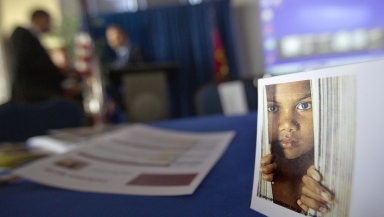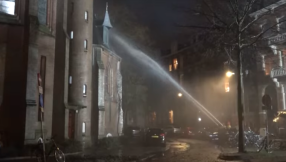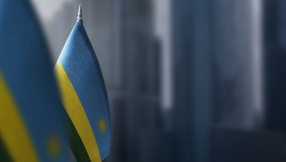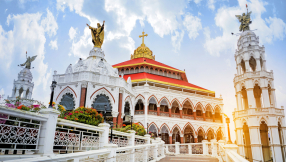
Catholics in the UK and US are being invited to observe an official day of prayer for survivors and victims of human trafficking on 8 February.
Bishop Patrick Lynch, auxiliary bishop of the Roman Catholic Archdiocese of Southwark, England, has called for the day of prayer to fall on the Feast Day of St Josephine Bakhita, a Sudanese saint who was kidnapped into slavery as a young girl.
Bishop Lynch has described St Bakhita as "a wonderful witness of how to live a life rooted in faith, inspired by hope and characterised by love", in spite of her traumatic experiences.
Though she suffered so terribly under oppression that she forgot her birth name, she was given the name 'Bakhita', meaning 'Fortunate' by her kidnappers.
Years later in Italy, she became a Catholic and lived as a Canossian Sister for fifty years, becoming renowned for her kindness and willingness to serve others. In the years before her death in 1947, however, she was haunted by memories of her abuse as an enslaved child. She was eventually canonised in the year 2000.
Her feast day is therefore being recognised as an excellent opportunity to raise awareness about human trafficking and slavery.
The modern slavery and human trafficking trade is currently worth at least $32 billion each year, and is rapidly growing. EU estimates suggest there are almost 900,000 people forced to work in slave labour conditions in Europe, and a number of those are here in the UK.
Globally, the situation is much worse: the official estimate from the Global Slavery Index indicates that there are around 30 million slaves working around the world, many of them to provide the West with cheap clothes and other consumer goods.
Human trafficking is now the second most profitable criminal enterprise after the illegal arms trade, which has led many charities and Christian organisations, such as Stop the Traffik and the A21 Campaign, to fight to bring change and transformation for millions of victims around the world.
Here in the UK, the Catholic Church is working in partnership with the Metropolitan Police to raise awareness of the impact of human trafficking both domestically and abroad, while also being in dialogue with branches of the Vatican to help with prevention and protection in countries where slaves often originate.
The UK government is also currently considering a Modern Slavery Bill, which hopes to once again put Britain at the forefront of the anti-slavery movement, over 200 years after William Wilberforce famously championed the abolition of slavery.













